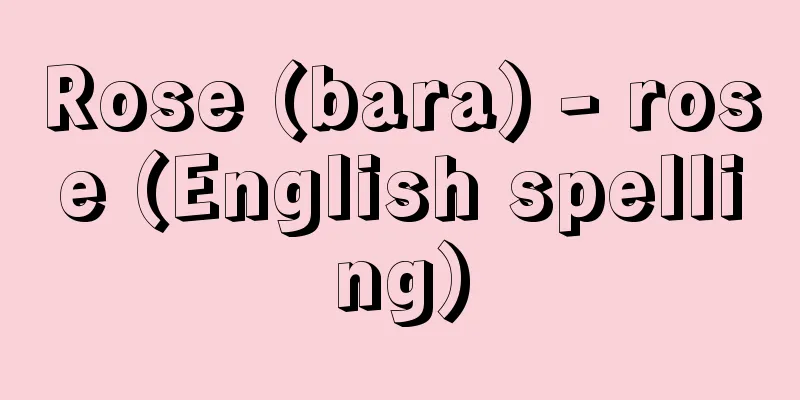Monokusataro - Monokusataro

|
The protagonist of "Monokusa Taro," one of the Otogi-zoshi (fairy tales) compiled by Shibukawa. In the village of Atarashi in Chikuma County, Shinano Province, a lazy man named Hijikasu lived a life of sleeping. The local lord, shocked and disgusted by his excessive laziness, ordered the villagers to support him, but when the governor of Kyoto ordered the village to take care of him, the role was forced on Monokusa Taro. Once in Kyoto, he worked diligently as if he had become a completely different person, and successfully performed his role. He stood in front of the gates of Kiyomizu-dera Temple searching for a woman to become his wife, and after a love poem exchange with an aristocratic princess whom he fell in love with, he won and married her. Having become an aristocrat, it was soon discovered that Taro was the son of the grandson of Emperor Fukakusa (Emperor Ninmyo), who had proposed to Zenko-ji Temple and was given the child. He was appointed Chujo of Shinano and returned to Japan. He lived to be 120 years old, and after his death, he was enshrined as Otakano Myojin and his wife was enshrined as Asahi Gongen. This is a tale of the same genre as the old tale "Netaro next door," but in old tales of the Netaro type, in which a lazy and poor man uses his wit to become the husband of a rich man, the setting of the story is limited to the countryside, and the story unfolds by emphasizing the superiority of wisdom. In contrast, in this story, the setting of the latter half is moved from the countryside to the capital, making it a tale full of surprises and ups and downs. In other words, through Taro's behavior, that is, the extreme change in behavior from "monokusa" in the countryside to "mame" in the capital, it is shown that the social systems and the values and ethics that support them are different in the countryside and the capital. Furthermore, it has been interpreted that behind the conflicting behavior of "monokusa" and "mame," the medieval principle of behavior, "nosa," runs through the mind. In medieval rural areas, there was a custom of using beggars, who were supported on a daily basis, as substitutes for actual criminals and dealing with them, and this custom can be seen as being reflected in the relationship between the upbringing of Monokusa Taro and his husbandly duties in this story. <References> Akihiro Satake, "Literature of the Overthrow of the Gekokujo"; Kazuhiko Komatsu, "The Universe of Narratives" (Kazuhiko Komatsu) Source: Asahi Japanese Historical Biography: Asahi Shimbun Publications Inc. About Asahi Japanese Historical Biography |
|
渋川判『御伽草子』のひとつ「物くさ太郎」の主人公。信濃国筑摩郡あたらしの郷に,物くさ太郎ひじかすという無精者が寝て暮らしていた。あまりの物ぐさぶりに驚きあきれた地頭は,村人に彼を養うように命令するが,やがて京の国司から村に夫役がかかったとき,この夫役を物くさ太郎に押しつける。京に上ると人が変わったようにまめまめしく働き,夫役を無事に務め,妻となるべき女性を探し求めて清水寺の門前に立ち,見初めた貴族の姫と恋歌の掛け合いの末に勝って結婚する。貴族になった太郎は,やがて深草帝(仁明天皇)の孫が善光寺に申し子して授かった子であることが判明し,信濃の中将に任じられて帰国する。120歳まで生き,死後はおたかの明神,妻は朝日の権現として祭られる。昔話の「隣の寝太郎」と同系統の説話であるが,怠け者で貧しい男が巧智を用いて長者の婿になるという寝太郎型の昔話では,物語の舞台が農村に限定されているため,知恵の優位を強調することで物語を展開させているのに対して,この物語では後半部の舞台を農村から都へ移すことで意外性に満ちた波瀾万丈の物語になっている。つまり,太郎の行動すなわち農村での「物くさ」から都での「まめ」への極端な行動の変化を通じて,農村と都では社会システムとそれを支える価値・倫理観が異なっていることを語り示しているのである。さらに,この「物くさ」と「まめ」の対立的な行動の背後には,中世人の「のさ」という行動原理が貫いているとの解釈もなされている。中世の農村では,日ごろ養っていた乞食などを実際の犯罪者の身代わりに立てて処理するという習慣があったので,その習慣がこの物語における物くさ太郎の養育と夫役の関係にも反映されているとみることもできる。<参考文献>佐竹昭宏『下剋上の文学』,小松和彦『説話の宇宙』
(小松和彦) 出典 朝日日本歴史人物事典:(株)朝日新聞出版朝日日本歴史人物事典について 情報 |
<<: Monogram artists - Monogram artists
Recommend
Kaitokudo
A school funded by townspeople that was establish...
Airfoil
…The series of airfoils created by the American N...
Edo Murasaki Kongen Soga
...He left his position as accountant and became ...
Crossword puzzle (English)
A type of puzzle game in which players follow hint...
Restoration Movement
…He then launched an educational movement centere...
Pungtungia herzi - Pungtungia herzi
A freshwater fish of the family Cyprinidae in the ...
School of science - École scientifique
This school criticized the French commentary schoo...
Juvenile Magazine
… [Europe and the US] In the second half of the 1...
Rice bale
These were made by weaving small bundles of straw...
Hydrometeorology - Suimonkisho
Also known as hydrometeorology. A branch of applie...
Pacific saury - Sanma (English spelling)
It is an oceanic surface-dwelling marine fish bel...
Écriture - Écriture (English spelling) French
It is a French word meaning "written things,...
Papeete
The capital of the Society Islands in French Polyn...
Artiodactyla
…an order of herbivorous or occasionally omnivoro...
Mishima [town] - Mishima
A former town in Santo District, central Niigata P...









